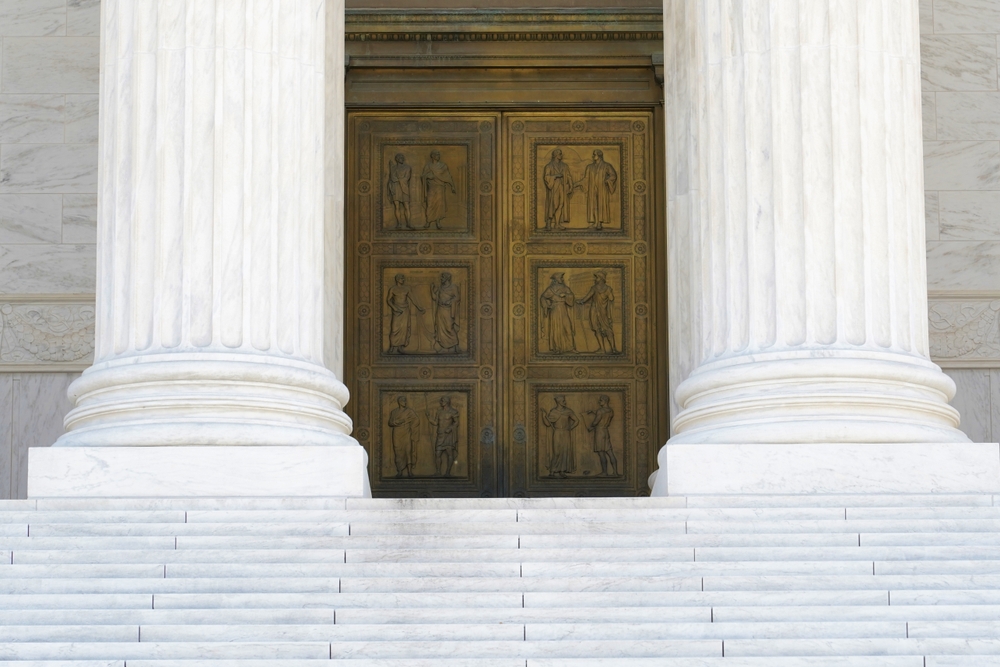
The Hard Limits on DOGE
DOGE and its advocates have assiduously created the false impression that our deficits are primarily the product of “waste, fraud, and abuse.”
A Department of Government Efficiency is necessary as a corrective to three of the biggest problems currently faced by the federal government. Those problems are profligacy and waste, bureaucratic unaccountability, and a bloated and lazy executive workforce. The Department of Government Efficiency (DOGE), by contrast, is a more complicated proposition. Theory, meet practice. Practice, meet theory.
As an unreconstructed limited government type, I am, on paper, the target audience for DOGE. I believe the federal government is too large. I think that the federal government spends too much money. And I think that a lot of what the federal government spends that money on is stupid. I also think that we could fire up to half of all our federal employees without losing much value. If I were given a magic wand, I would cut, slash, and diminish to my heart’s content.
But, in a constitutional republic, there is no such thing as a magic wand. There is law, and democracy, and leadership—and, under our system of government, the three interact in complex ways. Ultimately, DOGE will be unable to fix the problems about which I am concerned, because DOGE is bound by, rather than above the law; because DOGE is responsive to the presuppositions of the electorate, rather than determinative of them; and because, even within the executive branch, DOGE is subordinate to those who are in charge. Given America’s present penchant for so-called “political outsiders,” it may be good PR to pretend that Elon Musk and his band of prodigies are on the verge of remedying all that ails us. But PR is not reality, and in a republic, reality ultimately prevails.
This is not to say that DOGE is entirely impotent. It is rarely a bad idea for large institutions to subject themselves to audit, and in this endeavor, the outfit may prove useful. As a structural matter, there is nothing at all wrong with DOGE identifying spending decisions that have been delegated to the executive by the legislature and then recommending that they be altered, scaled back, or substituted in their entirety. Constitutionally, it would be ideal if Congress were specific about every dollar it spent, but, for a long time now, it has preferred to limit its role to the promulgation of vague aims and to let the White House fill in the details. For better or for worse, Donald Trump is the current occupant of the White House, and there is no good reason why he should be exempted from this pattern. If, having been informed about it by DOGE, Trump does not think that a given grant or program furthers the ends that Congress wishes to advance, he may cancel or amend it, exactly as Joe Biden or Barack Obama or George W. Bush did before him. What he may not do, by contrast, is refuse to spend the money at all. Nor may he order it to be spent for purposes that completely escape the auspices under which it was allocated. Those moves require Congress, and there is no avoiding that fact. Insofar as DOGE is engaged in the former pursuit, it is welcome. Insofar as it is engaged in the latter, it is usurpatory.
By the same token, DOGE can play a role in reducing the federal workforce. Under what I consider to be the only proper reading of Article II, the president of the United States can fire—but not hire—anyone within the executive branch, for any reason. As such, absent specific instructions from Congress, the president enjoys broad authority to determine how many people are necessary to help him faithfully execute the laws. Naturally, that number cannot be zero, because, in almost every conceivable case, having zero employees would render the agency unable to perform the tasks for which it was created, and thus impede the executive’s mandate to faithfully execute the laws. Beyond that, however, DOGE can legitimately recommend as many or as few bureaucrats as it considers optimal.
And, finally, there is fraud and abuse—the two areas in which DOGE has the most authority (subject to presidential approval). Naturally, the executive branch is not obliged to spend money on fraud, or to tolerate abuse, and that being so, any improper payments that it identifies cannot only be canceled immediately but represent real savings that can be made without the review or acquiescence of Congress.
So far, so good. But then, ineluctably, we must return to our magic wand problem, which not only creates a technical problem for DOGE, but a serious political problem for American conservatism. Over the last couple of months, DOGE and its advocates have assiduously created the false impression that our deficits are primarily the product of “waste, fraud, and abuse” and that the savings that will result from addressing this will be sufficient to make painful policy decisions unnecessary. I now hear it repeated frequently that DOGE is likely to save “trillions” of dollars, and even that, in concert with tariffs or some other magic bullet, its work will go a long way to balancing the budget. This is not true, and it matters that it is not true because the only thing worse than having a massive fiscal problem to address is having a massive fiscal problem to address that a sizeable portion of the public believes has already been addressed.
Dealing with our annual deficits and the debt that they cause is going to be extremely painful. Already, the public is hostile toward the prospect. Politically, it is understandable that none of our elected officials wish to touch the question of reform, but at the very least, they might making it worse. It would thus be a matter of considerable irony if DOGE, an organization that cloaks itself in the mantle of responsibility, retrenchment, and economic conservatism, ended up worsening our national delusions and, in the process, making our runaway spending more difficult to fix. Set in the correct context, DOGE is a valuable tool. Elevated beyond its station, it is counterproductive. Our core fiscal problem here in the United States is a lack of will, not a lack of knowledge. Currently, nobody wants to cut the programs on which we spend the most money, and nobody wants to reform the runaway entitlements that threaten ruin. It would be nice if an eccentric inventor could spare us the trouble of addressing that. He cannot.
Charles C. W. Cooke is a senior editor at National Review and the host of The Charles C. W. Cooke Podcast.
Constitutionalism

Amicus Brief: Hon. William P. Barr and Hon. Michael B. Mukasey in Support of Petitioners
Former AGs Barr and Mukasey Cite Civitas in a SCOTUS Brief

Rational Judicial Review: Constitutions as Power-sharing Agreements, Secession, and the Problem of Dred Scott
Judicial review and originalism serve as valuable commitment mechanisms to enforce future compliance with a political bargain.

Supreme Court showdown exposes shaky case against birthright citizenship
Supreme Court will hear challenges to Trump's order ending birthright citizenship, testing the 14th Amendment's guarantee for babies born in America.

Slavery and the Republic
As America begins to celebrate its semiquincentennial, much ink has been spilled questioning whether that event is worth commemorating at all. Joseph Ellis’s The Great Contradiction could not be timelier.

Two Hails For The Chief’s NDA
Instead of trying to futilely plug the dam to stop leaks, the Court should release a safety valve.


.avif)










.avif)



